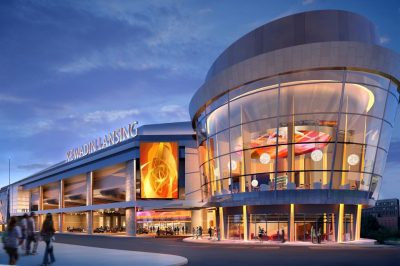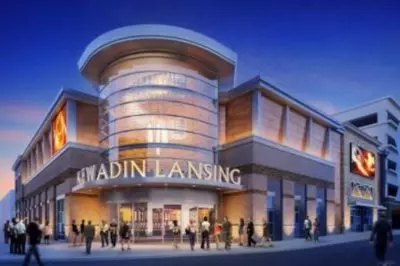 The gaming industry in Michigan has witnessed riveting development in the past years, introducing new offerings and elevating its state Lottery to the status of the most popular one. This week brought the news that one of the long-discussed projects for a casino venue located in the capital of the state might not become a reality in the foreseeable future.
The gaming industry in Michigan has witnessed riveting development in the past years, introducing new offerings and elevating its state Lottery to the status of the most popular one. This week brought the news that one of the long-discussed projects for a casino venue located in the capital of the state might not become a reality in the foreseeable future.
Ever since the year 2012, the Native American tribe has been in the process of negotiating conditions under which it could introduce a new casino venue located in downtown Lansing. It could be recalled that the Sault Ste Marie Tribe of Chippewa Indians made a proposal to construct a new gambling facility in the area, as the new venue is going to be adjacent to the Lansing Convention Center in the downtown area.
This location was chosen as it was going to situate Kewadin Lansing Casino along Michigan Avenue which guarantees it a considerable customers flow and potentially steady revenue growth. Now it has become clear that the future of this proposed casino project might be under question. The beginning of next year is going to see the expiration of the agreement for the construction which never saw the project move forward.
The main issue is that ever since the proposal the Federal Government has been adamant in its decision to give no nods to more casino venues in Lansing. In the meantime, the Native American tribe remains determined to finalize its initial plans and make the new venue a reality. According to the initial project presented by the tribal officials back when the project was first discussed, it was going to be estimated to some $245 million providing all patrons with premium gaming offerings.
Six-Year Delay in the Project Takes Its Toll
 Hopes and expectations for the new casino projects were high and the tribe was ambitious with its proposal, but there were other factors standing in their way. The first one was when the Interior Department had to make an official decision regarding the status of the land. The positive impact of the new project which was pointed out back then was that the project is going to create job positions for 1,500 permanent employees, as well as up to 700 construction workers.
Hopes and expectations for the new casino projects were high and the tribe was ambitious with its proposal, but there were other factors standing in their way. The first one was when the Interior Department had to make an official decision regarding the status of the land. The positive impact of the new project which was pointed out back then was that the project is going to create job positions for 1,500 permanent employees, as well as up to 700 construction workers.
What needed to be done was for the authorities to make a move and decide whether or not to take the land proposed for the construction of the casino venue into trust. According to the Land Claims Settlement Act from 1997, the proposed plans had to be greenlighted by the authorities due to the status of the land. This prevented the entire project from further progressing and stalled the process.
Since the reviewing process of the proposed casino venue was still in its initial stages back then, the expected change of the administration of the Native American tribe. As it was pointed out then by the tribe’s attorney John Wernet, this change caused an even bigger delay in the debates process. Shortly after that other Native American tribes operating their gambling venues in the state of Michigan made it clear that they are strongly opposing the new casino project in Lansing.
Lansing Mayor Andy Schor recently claimed that the overall attitude towards a casino venue located in the downtown area of the capital has not been the warmest and there are other more suitable for the purpose land lots. He also pointed out that if there are any changes in the overall attitude of the officials towards a new Lansing tribal casino, he would like to reopen the discussion with the tribe.